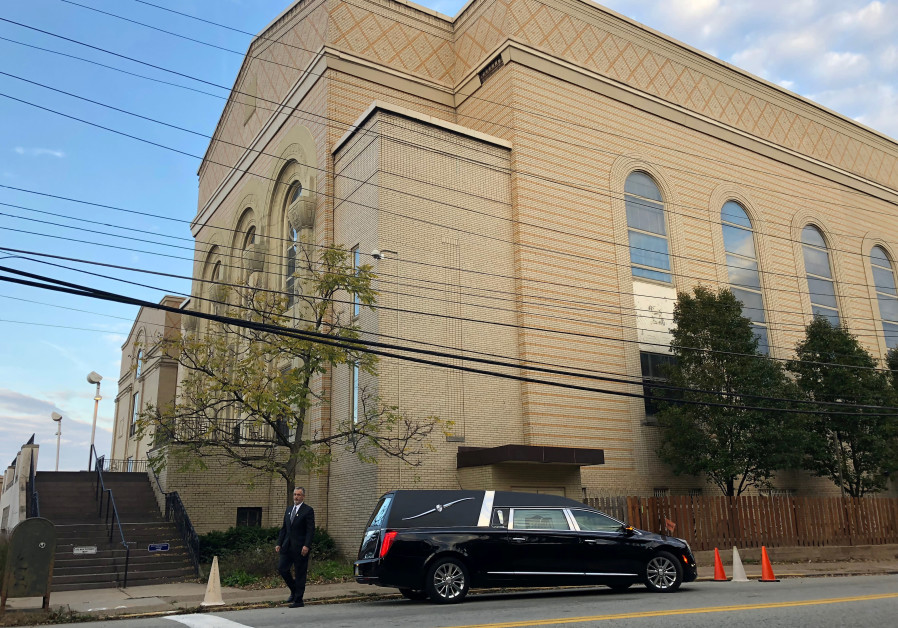“Pittsburgh was a very high-profile, historic and disturbing event, so it’s very much part of the conversation,” said Nathan Diament, executive director for the Orthodox Union Advocacy Center.

WASHINGTON – Major American Jewish groups are divided over whether federal grants should be used to secure houses of worship, in light of a mass shooting at a synagogue in Pittsburgh, Pennsylvania, last month.
While conservative organizations are lobbying for additional federal dollars to protect religious institutions, citing the massacre at the Tree of Life synagogue and an FBI report documenting a rise in antisemitic incidents nationwide, civil liberties organizations continue to express concern that government security grants for temples breach a delicate constitutional line separating church and state.
The Orthodox Union, on the one hand, has rallied lawmakers around a letter calling on leadership in the House of Representatives to support $60 million in nonprofit security grant funding – an effort to convince Congress to match last year’s record security assistance for religious institutions.
“The breadth and scope of threats against places of worship and other at-risk nonprofit institutions are deeply troubling,” reads the letter, penned by 130 House members to their colleagues. “With the horror of the Tree of Life synagogue attack – the deadliest attack against the Jewish community in US history– fresh in our minds, we must not lose sight of the fact that it was at least the third mass shooting in a house of worship in three years.”
Earlier this year, the House successfully passed the Securing American Non-Profit Organizations Against Terrorism Act, which for the first time legalizes federal grants for the target hardening of religious spaces. That bill advanced in light of a slew of high-profile bomb threats against Jewish centers, and before the massacre at Pittsburgh’s Tree of Life synagogue.
“Pittsburgh was a very high-profile, historic and disturbing event, so it’s very much part of the conversation,” said Nathan Diament, executive director for the Orthodox Union Advocacy Center.
On the other hand, the Anti-Defamation League is cautioning Congress to focus instead on federal tracking of extremist threats – especially those arising from a growing movement of white supremacism nationwide.
ADL supports passage of the Domestic Terrorism Prevention Act, a bill authored by Democratic Sen. Dick Durbin of Illinois, which would require federal law enforcement agencies to regularly assess the threat and train state and local police to spot potential cells. But it does not support directing taxpayer dollars in the form of government grants to religious institutions for any purpose, including for security purposes, said one official with the organization.
That official expressed “constitutional and policy concerns” about the implications of such grants, and said that ADL would continue to oppose direct grants to religious institutions “without necessary constitutional and antidiscrimination safeguards.”
“Security remains a top priority for the American Jewish community,” said an ADL spokesman. “ADL is working closely with synagogues, schools and other communal institutions to ensure that they have a strong security plan in place and have close relationships with local law enforcement.”
ADL, the Jewish Federations of North America and the Conference of Presidents of Major American Jewish Organizations, have since 2004 participated in a joint Secure Community Network that unites the alphabet soup of Jewish groups behind Homeland Security initiatives.
The network provides Jewish communities with professional help to “review their security infrastructure, protocols and preparedness and make recommendations for enhancements,” and directs Jewish centers to the Federal Emergency Management Agency’s grant applications, which allow for up to $75,000 in security assistance per site.
As reported by The Jerusalem Post
